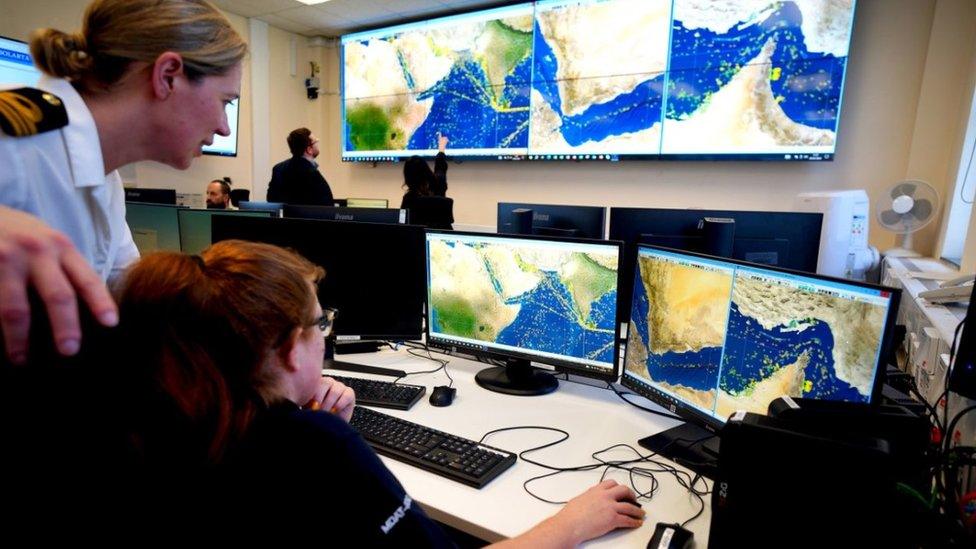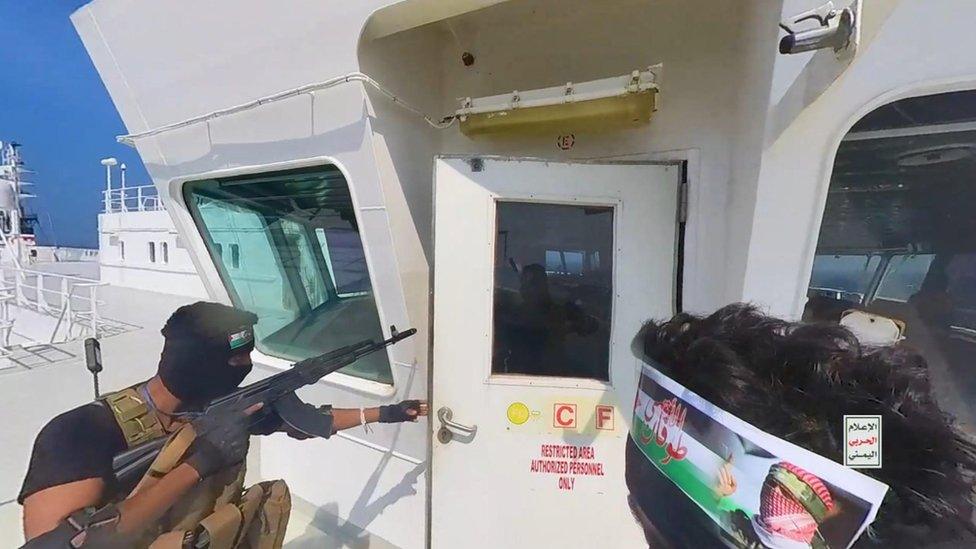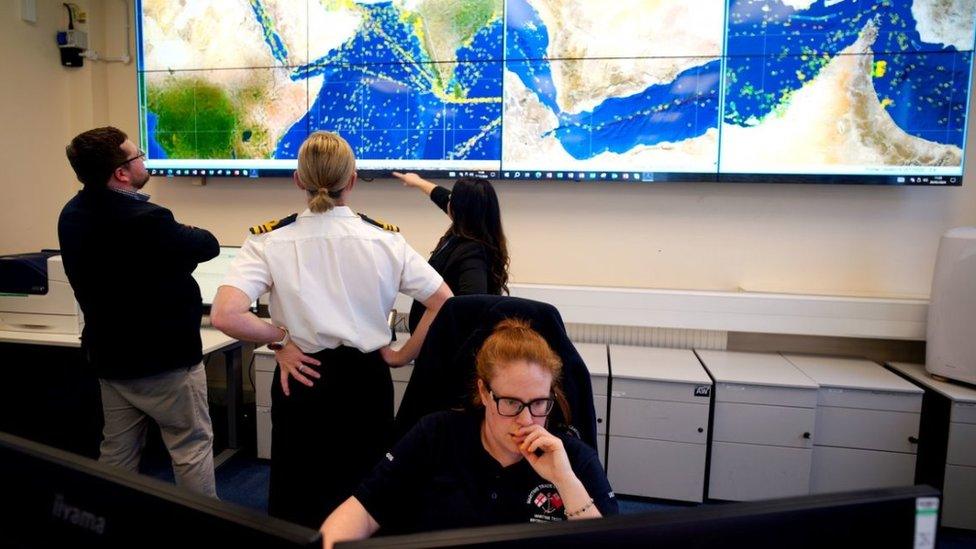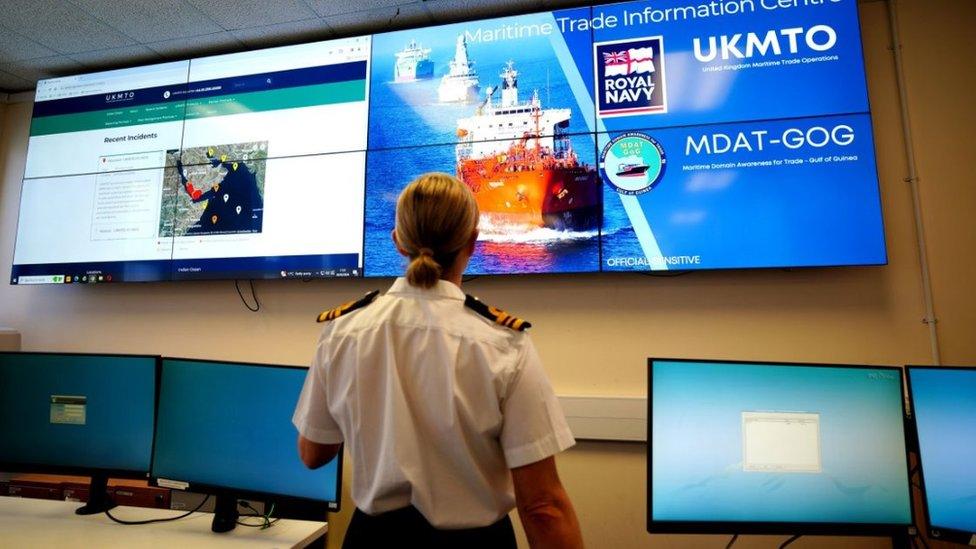Portsmouth centre sees rise in Middle East shipping distress calls
- Published

The UK Maritime Trade Organisation acts as a 999 call centre for international shipping in distress
The Royal Navy's facility for handling international shipping emergencies has experienced an "unprecedented" increase in reported incidents.
The UK Maritime Trade Organisation control centre at Portsmouth acts as a 999 call centre for ships in distress.
It has seen a near fivefold increase in its calls since Houthi rebels began targeting ships with links to the UK and US in November 2023.
More than 40 ships have been attacked in the Red Sea and Gulf of Aden.
The UK Maritime Trade Operations (UKMTO) was originally set up in Dubai in 2001 to act as a hub for handling distress calls from international shipping in the Middle East.
It was moved to Portsmouth, Hampshire, in 2014.
The Royal Navy operation now employs a civilian team of 15 watch-keepers and three managers covering calls 24 hours a day from shipping in the southern Red Sea, Bab al Mandeb and the Gulf of Aden.
The civilian handlers take emergency calls from ships' masters from all nationalities, co-ordinate rescue responses and circulate warnings to other shipping.

The Houthis released images showing their fighters hijacking a vessel in the Red Sea on 21 November
Lt Cmdr Joanna Black said it dealt with up to seven "very complex" incidents per day.
She said: "We are dealing with missile attacks on merchant shipping, UAV [unmanned aerial vehicle] attacks and harassment.
"We also see small boat harassment and possible resurgence of Somali-based piracy and even interference with VHF comms."
In the fourth quarter of 2023, the UKMTO put out 71 warnings and advisories, took part in 40 exercises and drills, handled 27 emergency events such as medical incidents and breakdowns and handled 225,178 emails.
The Red Sea is the fastest sea route between Asia and Europe.
Large shipping firms, including Mediterranean Shipping Company and Maersk, have diverted vessels to the much longer route around Africa's Cape of Good Hope and then up the west side of the continent.
Shipping costs have increased after Houthis attacked commercial vessels traveling through the Red Sea following the start of the Israel-Hamas conflict in October.
The Iran-backed group said it was targeting ships linked to Israel, the US and the UK in support of Hamas.
The US and the UK responded with air strikes on Houthi targets in Yemen.

The Royal Navy operation employs a civilian team of 15 watch-keepers
Darren Longhurst, a watchkeeper who used to serve in the Royal Navy, said: "There's been a couple of hairy moments - obviously you can't physically see it, but when you can hear them in the background when you're talking to the master and everything is going off, the adrenalin starts going then."
Lt Cmdr Black said the team's role was to provide a "clear interface" with ships at sea.
"A lot of the ships masters and security officers we are talking to don't have English as a first language, they are civilians in a very frightening, incredibly stressful situation," she said.
"Our team need to deal with that, much like 999 call operators, to understand and establish the truth and support, reassure and inform those people in distress that help is on its way."

The Portsmouth centre has seen a 475% rise in calls from ships in distress

Follow BBC South on Facebook, external, X, external, or Instagram, external. Send your story ideas to south.newsonline@bbc.co.uk or via WhatsApp on 0808 100 2240, external.